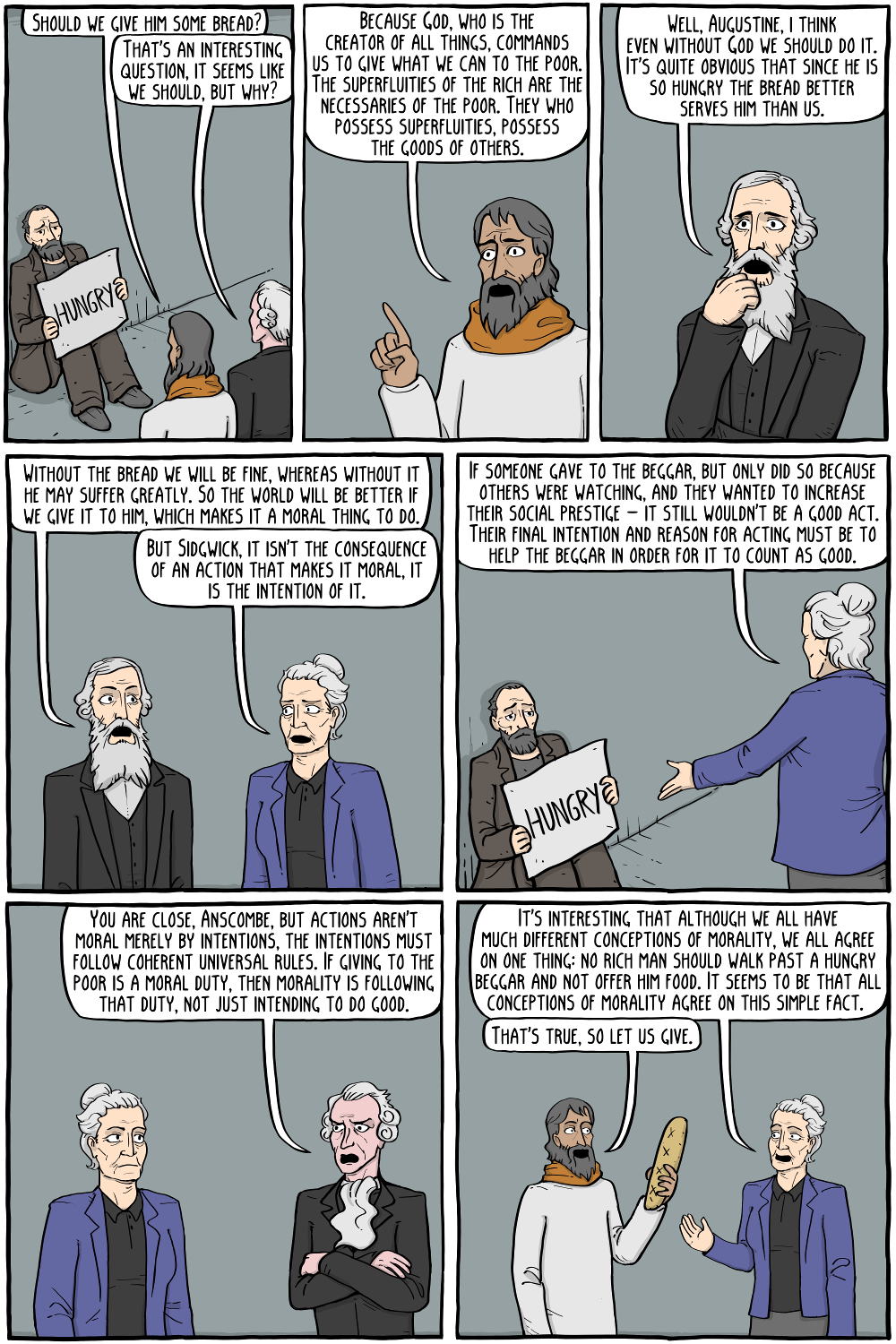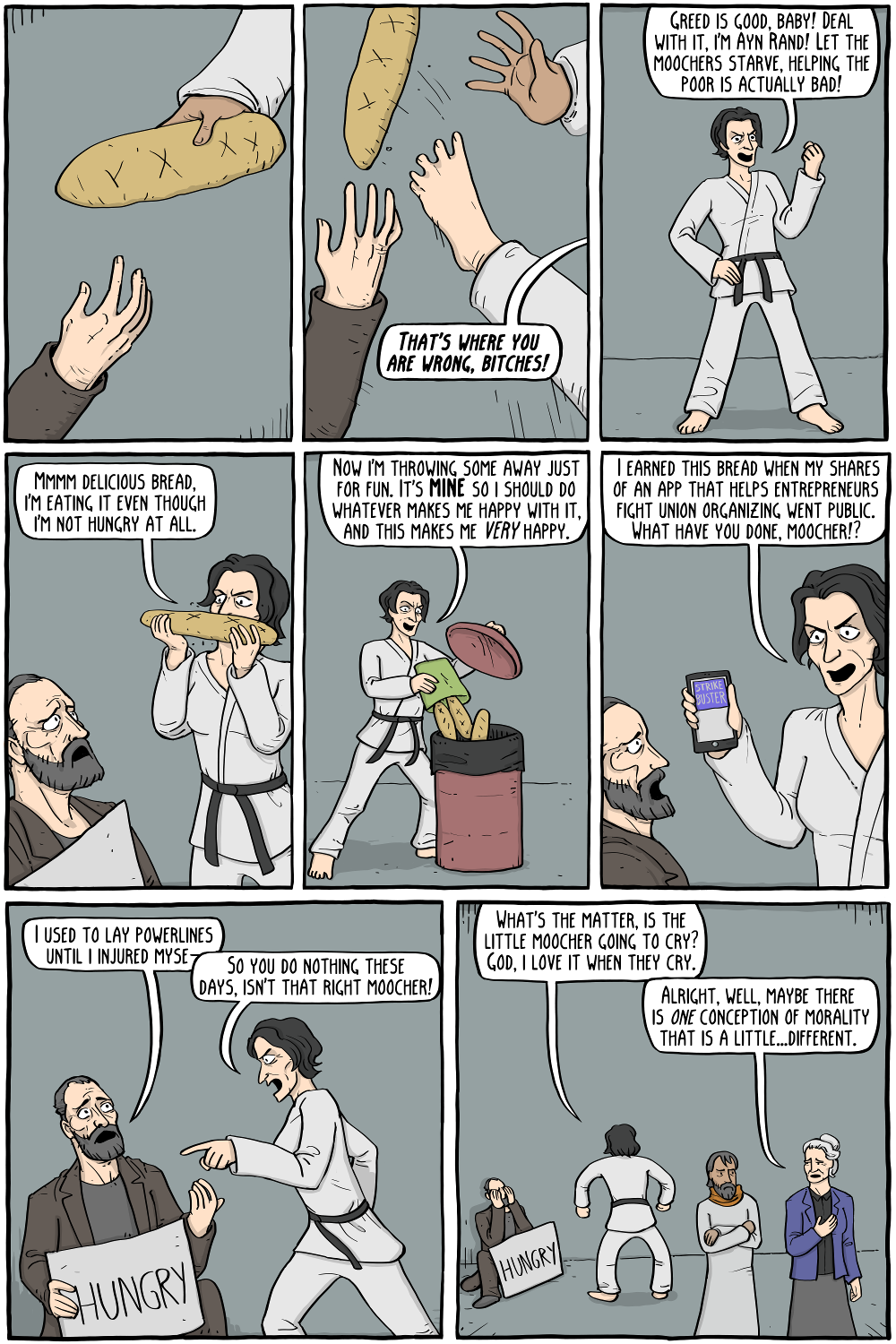

In moral philosophy, the three major branches of ethical theory are Utilitarianism, such as espoused by Henry Sidgwick, which says that moral actions relate to their consequences that they bring about; Virtue Ethics, as espoused by Elizabeth Anscombe says moral actions are those that have a certain intentionality of a virtueous person (that is to say the morality is internal, in a sense); and Deontology, as espoused by Immanual Kant, which says that moral actions are those that follow certain rules. Although not as popular among philosophers these days, a fourth type of moral theory is Divine Command Theory, as espoused by Saint Augustine, which says that moral actions are those that follow God's commands.
For a great many questions of practical morally, these three systems will agree, such as "should you give your extra food to a starving man." This would have a good consequence, be a virtuous intent, follow a good rule, and would be as God commands it. In fact, such moral values are so universal that it is hard to think of any philosophy, culture, or religion at any time who says that a rich man should walk by a starving poor man and not be obliged to give him bread.
That is, of course, except for Ayn Rand.
Permanent Link to this Comic: https://existentialcomics.com/comic/258
Support the comic on Patreon!










